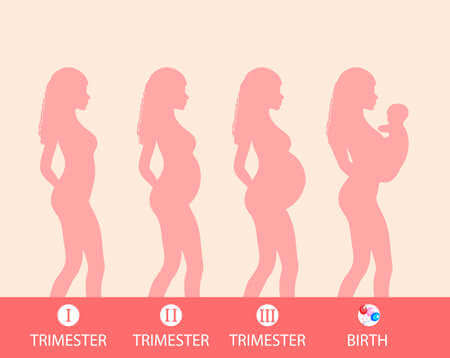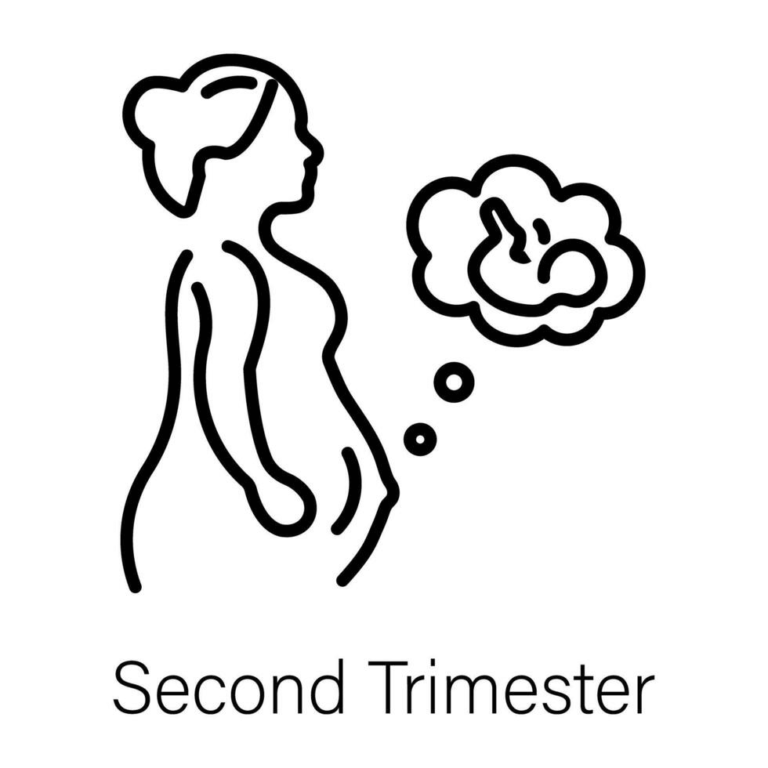The Fourth Trimester: Your Baby’s Development and Maternal Recovery

During your pregnancy, time was divided into trimesters, each spanning about 12 weeks. After three trimesters, your baby is born. According to Dr. Harvey Karp, these three trimesters aren’t enough; he coined the term “Fourth Trimester” to describe the crucial 12-week period following birth, emphasizing its importance for both infant development and maternal recovery.
At Babyix.com, we understand the significance of this period and are here to guide you through it.
What is the Fourth Trimester?
The fourth trimester is the first three months after your baby’s birth. Dr. Karp suggests that full-term babies, while physically ready to be born, could benefit from another 12 weeks in a womb-like environment to support brain development and adaptation to the outside world.
What Happens in the Fourth Trimester for Your Baby?
This period is marked by rapid growth and transformation. Initially, your baby’s instincts include startling, sucking, grasping, and rooting for food. Over these three months, these instincts develop into recognizing hunger, reacting to external stimuli, and gaining muscle strength. Your baby will go from being a curled-up newborn to a relaxed, full-length infant who can hold up their head. Vision also improves, with newborns seeing in grayscale up to 8-12 inches and progressing to full-color sight across the room by three months. Babies will begin to recognize and react to parents, siblings, caregivers, and favorite objects.
To help your baby transition smoothly, follow Dr. Karp’s 5 S’s of the fourth trimester:
- Swaddle: Keep your baby warm and mimic the cozy feeling of the womb. Stop swaddling once your baby can roll over.
- Stomach or Side Position: Holding your baby on their stomach or side can be soothing. Always place them on their back to sleep.
- Shush: Use white noise to mimic the constant sound of blood flow they heard in utero.
- Swing: A swing can replicate the swaying motion they experienced in the womb.
- Suck: Sucking is a natural instinct that provides comfort. Determine whether your baby needs to feed or just needs a pacifier.
Neonatal Care: Four Trimesters, Not Three
Ensure you attend all pediatric appointments during the first three months. Your Babyix.com healthcare provider will monitor your baby’s health and development, begin necessary immunizations, and address any questions you have.
Also read: A Complete Guide To The Fourth Trimester
Fourth Trimester Care for Moms
Postpartum care for mothers is equally important. Hormonal changes can increase the risk of depression and anxiety. Physical recovery from childbirth, whether cesarean or vaginal, and sleep deprivation are common challenges. Seek help from your partner, family, and friends. Accept offers for cooking, cleaning, and errands.
Babyix.com Support for New Moms
We are excited to announce New Mom Wednesdays, regular Zoom meetings providing a supportive, non-judgmental space for new moms. From 10:30 am to noon, join us to discuss a variety of topics with fellow mothers and a Babyix.com physician, including:
- Variations in baby personalities and development
- Different parenting styles
- Infant safety
- Feeding issues
- Postpartum mood disorders
- Changing dynamics with partners
- Sibling relationships
- Family management
- The challenges and joys of parenting
Watch our website and social media for our Fall start date and more details!
When you need additional resources, such as soothing techniques or breastfeeding help, contact your Babyix.com provider. We’re here to support you with information on baby care, post-delivery care for moms, and lactation techniques.
Visit Babyix.com for comprehensive guidance through the fourth trimester, ensuring the best start for both you and your baby.






